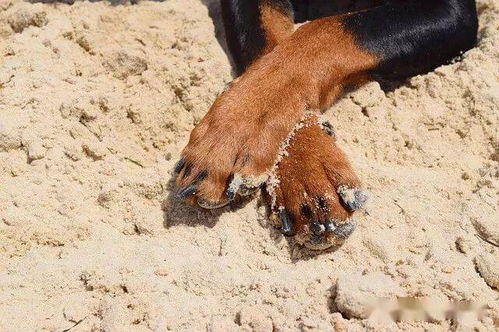
Understanding the Behavior

Your dog biting its nails can be a perplexing behavior, but it’s important to understand the reasons behind it. Dogs, like humans, exhibit a variety of behaviors that can be influenced by several factors. Let’s delve into the possible reasons why your dog might be biting its nails.
Stress and Anxiety

One of the most common reasons dogs bite their nails is due to stress or anxiety. Just like humans, dogs can feel overwhelmed by certain situations or environments. If your dog is biting its nails, it might be a sign that it’s feeling anxious. This could be triggered by loud noises, unfamiliar people, or even changes in the household.
Boredom and Lack of Exercise

Boredom and a lack of exercise can also lead to nail-biting in dogs. Dogs need mental and physical stimulation to stay happy and healthy. If your dog is not getting enough exercise or is not engaged in activities that challenge its mind, it might turn to nail-biting as a way to pass the time.
Teething and Growth Pains
Young puppies often bite their nails as a part of the teething process. As their teeth grow in, they may chew on their paws, including their nails. This behavior can also occur in adult dogs, especially those with joint or growth issues, as they may bite their nails to relieve discomfort.
Genetic Factors
Some dogs may have a genetic predisposition to nail-biting. If your dog’s parents or siblings exhibited this behavior, it’s possible that your dog might do the same. Genetic factors can play a role in a dog’s behavior, including its tendency to bite its nails.
Training and Socialization
Training and socialization can also influence a dog’s nail-biting behavior. If your dog was not properly trained or socialized as a puppy, it might have developed this habit. Dogs that are not taught appropriate behaviors may resort to nail-biting as a way to cope with stress or boredom.
Medical Conditions
In some cases, nail-biting in dogs can be a symptom of an underlying medical condition. This could include allergies, skin issues, or even neurological disorders. If your dog starts biting its nails suddenly or if the behavior is accompanied by other symptoms, it’s important to consult a veterinarian to rule out any medical issues.
How to Address the Behavior
Now that you understand the reasons behind your dog’s nail-biting, let’s discuss how to address this behavior. Here are some tips to help your dog kick the habit:
-
Provide adequate exercise and mental stimulation to keep your dog engaged and happy.
-
Identify and eliminate stressors in your dog’s environment.
-
Offer alternative activities, such as chew toys or puzzle games, to keep your dog’s mind occupied.
-
Consider using a nail-biting deterrent, such as bitter-tasting nail polish or sprays, to discourage your dog from biting its nails.
-
Consult a professional dog trainer or behaviorist for guidance on how to modify your dog’s behavior.
Table: Common Causes of Nail-Biting in Dogs
| Reason | Description |
|---|---|
| Stress and Anxiety | Dogs may bite their nails when they feel overwhelmed or anxious. |
| Boredom and Lack of Exercise | A lack of physical and mental stimulation can lead to nail-biting as a way to pass the time. |
| Teething and Growth Pains | Puppies and dogs with joint or growth issues may bite their nails for relief. |
| Genetic Factors | Some dogs may have a genetic predisposition to nail-biting. |
| Training and Socialization | Inadequate training or socialization can contribute to nail-biting behavior. |
| Medical Conditions | Nail-biting can be a symptom of an underlying medical issue. |







